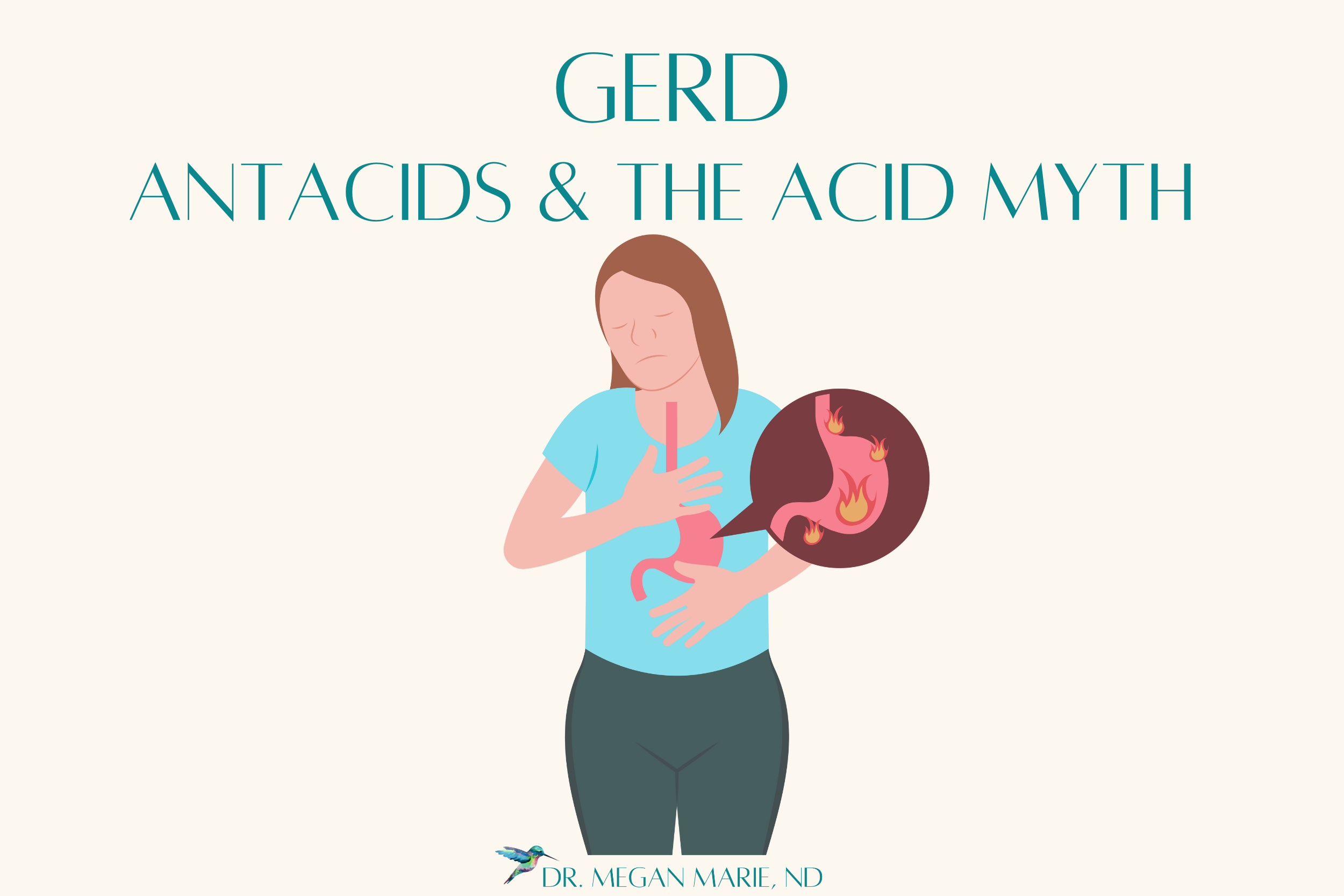GERD, Antacids, and the Acid Myth
If you’ve had your gallbladder removed—or even if you haven’t—but still struggle with reflux, bloating, or a burning throat, you’re not alone. Despite what we’ve been told, GERD isn’t always caused by too much acid. In fact, low acid and sluggish digestion are often the real culprits. In this post, we’ll explore the truth about antacids, the surprising role of bile, and simple, root-cause strategies to restore digestive flow—without lifelong meds.
Gallbladder Removal: What You Weren’t Told
Most people are told their gallbladder is “optional”—but no one tells them why it failed in the first place or what their body needs afterward. This post dives into the real reasons behind gallstones, what happens to digestion without a gallbladder, and how to support your liver, gut, and nutrient absorption for better health long-term.
Halides & Your Thyroid: A Balancing Act
Did you know that fluoride, chlorine, and bromide—common in water, food, and household products—can compete with iodine and disrupt thyroid function? This post explores how these halides impact thyroid health, why iodine is essential, and how historical interventions like fluoridation and bromated flour may be affecting us today. Learn how halides are processed in the body, their connection to non-celiac gluten sensitivity, and practical strategies to reduce exposure and support detoxification through food, filtration, and supplementation. Protect your thyroid by making informed choices.
The Endocrine Society's Vitamin D Guidelines: A Step Backward?
The Endocrine Society Just Downplayed Vitamin D—But Should They Have?
The Endocrine Society’s latest guidelines claim vitamin D deficiency isn’t a major concern and that most adults don’t need to supplement beyond the RDA. But does this align with what we know about vitamin D’s role in insulin regulation, immune health, and hormone balance? In this post, I break down why their stance ignores decades of research, what symptoms of deficiency to look out for, and how to optimize your vitamin D levels for better health.
Cravings & The Nervous System: What Your Body is Really Asking For
Cravings aren’t just about hunger or willpower—they’re messages from your nervous system. When stress depletes key neurotransmitters like dopamine and serotonin, your body instinctively seeks out sugar, salt, and fat to rebalance. But the relief is temporary, leading to a cycle of cravings. Understanding what your body is truly asking for allows you to nourish yourself in a way that supports long-term well-being. What if your cravings weren’t the enemy, but a guide?
Better Sleep: What Stress & Hormones Have to Do With It
Stress, hormones, and daily habits all play a role in whether you wake up feeling refreshed—or like the creature from the Black Lagoon. I’ve been on my own sleep journey, from crashing anywhere as a kid (yes, even on ski lifts) to learning how to navigate the push-and-pull of stress, cortisol, and hormonal balance. If you’ve ever found yourself waking up at 3 a.m., dealing with a second wind at night, or feeling groggy no matter how much sleep you get—you’re not alone. In this post, I dive into why sleep changes, how stress and hormones throw off your rhythms, and what you can actually do about it—including herbs, lifestyle shifts, and foods that support deep, restorative rest.
The Myth of "Perfect" Sleep: Why Waking Up at Night Might Be Normal
Have you ever woken up in the middle of the night and wondered why? While modern society treats uninterrupted sleep as the gold standard, history and biology suggest that biphasic sleep—waking for a period in the night—is actually quite normal. In this post, we explore why some people are naturally wakeful at night, how age and stress impact sleep rhythms, and when wakefulness signals a deeper imbalance. Plus, learn practical tips to work with your body's natural rhythm instead of fighting against it.
Why Do Multivitamins Have More Than the RDA?
The Recommended Dietary Allowances (RDAs) were established (in the 1940-50s) to prevent acute nutrient deficiencies, focusing on minimum requirements for survival. However, modern research indicates that higher nutrient intakes may support optimal health, energy, and disease prevention. Factors such as stress, environmental toxins, and individual variations can increase nutrient needs beyond the RDA. Consequently, many multivitamins provide nutrients in amounts exceeding 100% of the RDA to address these enhanced requirements and promote overall well-being.
Energy Clearing: Tuning into Yourself in a Chaotic World
Feeling drained or out of sync? Energy clearing isn’t about removing ‘bad’ energy—it’s about tuning back into yourself. Just like a piano that goes out of tune, we naturally pick up external frequencies that may not align with our own. This post explores what energy clearing really means, how to recognize when you're off balance, and simple practices to realign with your authentic energy. Plus, join me for an upcoming group meditation and healing session to reset and reconnect!
The Body’s Innate Healing Power
Have you ever stopped to marvel at your body’s ability to heal itself? From a scraped knee to post-surgery recovery, your body works tirelessly behind the scenes, repairing, restoring, and rebalancing without any conscious effort. But if healing is something the body does naturally, why would anyone seek out a healer? In this post, we’ll explore the science behind the body’s innate healing power, how energy healing might amplify this process, and why a healer’s role is less about doing the work for you and more about guiding you through your own incredible capacity to heal.










